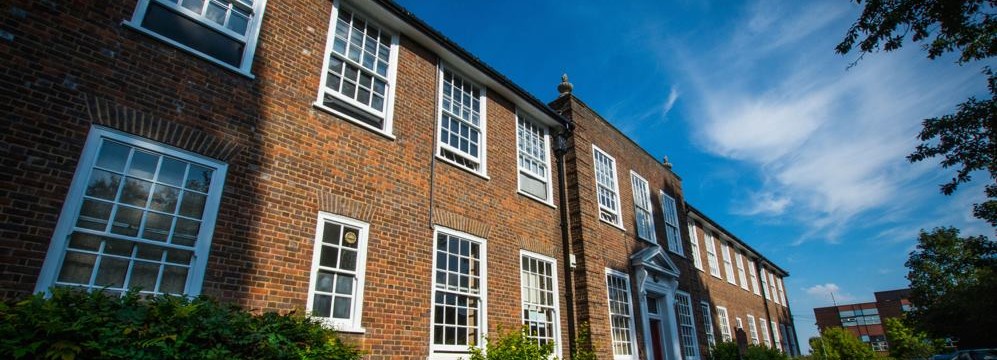It is believed there was a school in Bury St Edmunds from the 10th century. In 903 the body of King Edmund was laid in the priests’ college, of which the school was a part. King Canute established a Benedictine Monastery in Bury, and paid from the royal purse for boys of promise, even freed sons of slaves, to attend school. In 1550 lands were given to provide funds for a “scole ther to be founded by the kinges Maiestie in the like manner as the school at Sherbourne”
King Edward VI School is, therefore, the second King Edward VI School in the country, and in 2000 it had been founded for 450 years. Bury was privileged to have a Royal School. The charter with Edward’s seal is in the Public Records Office together with documents and books from the early years of the school’s existence. One of these is the list of rules for the masters and boys. Originally a grammar school for boys, who studied Greek, Latin and religious instruction, it has moved to various different sites in the town all of which are marked with plaques donated by the Old Burians’ Association of past students
King Edward VI School in 1550
- The school was opened on 3 August 1550 in Eastgate Street.
- The first High Master was John King (1550-2).
Rules for staff in 1550
- They shall abstain from dicing, gaming and tippling. They must not keep their family on the premises. Women like deadly plagues shall be kept at a distance. The masters shall not be excessively harsh or severe or weakly prone to indulgence.
- They shall teach a little at a time, with plenty of examples. They shall never advance to fresh subjects … until the earlier ones are thoroughly understood.
- The teachers shall appoint two boys called censors to note offences. The teachers shall secretly appoint a third boy to watch the other two and report to the master any offences overlooked or not noticed.
- Shouting, quarrelling, noise, thieving, lying coarse language and the impertinence of boys leaving their proper places shall be repressed by the teacher.
- When it is thought fit to allow some relaxation to unbend the mind and sharpen the wits the boys shall amuse themselves in decent sports such as running races, the use of the javelin or archery. They shall not play dice, knucks (knuckle bones) or chuck farthing (tossing coins). These games are unworthy of a well bred youth. The privilege of recreation shall only be allowed on Thursdays and only then if the weather is fine and the work of the scholars justifies it.
Rules for parents in 1550
- You shall find your child sufficient paper, ink, pens, books and candles for the winter.
- You shall allow your child a bow, three shafts, bow strings and an arm guard to exercise shooting.
- If your child shall be absent from school (unless it be by sickness) he shall be banished from the King’s Majesty school.
School rules for the boys in 1550
- Those who cannot read and write shall be excluded. They must learn elsewhere the arts of reading and writing.
- No boy shall come to school with unkempt hair, unwashed hands or dirty shoes or boots, torn or untidy clothes. Any boy misbehaving himself either in Church or any other public place shall be flogged.
- They shall speak Latin in school. Truants, idlers and dullards shall be expelled by the High Master after a year’s trial. Every boy shall have at hand, ink, paper, knife (used to sharpen a quill pen), pens and books. When they have need to write the boys shall use their knees as a table.
- The whole of the scholars (100) shall be assembled in the morning at 6 o’clock and at 1 o’clock. They shall go home to dinner at eleven and to supper at five. There shall be five classes, under two masters in two rooms, the older boys looking after classes when the masters were not teaching them. School shall finish at 3pm on Saturdays and half holydays.



